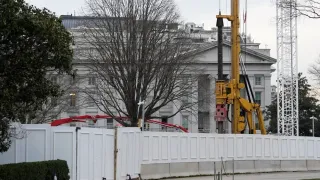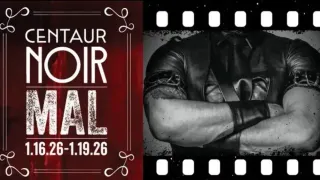August 22, 2021
New Orleans Tourism Industry Worries as Coronavirus Rages
Rebecca Santana and Kevin McGill READ TIME: 4 MIN.
It's a neighborhood bar and restaurant, but for two extended weekends every year, the "regulars" at Liuzza's by the Track include an overflow crowd of tourists grabbing drinks and settling in for meals on their way in and out of the nearby New Orleans Jazz and Heritage Festival.
Co-owner James Gonczi estimates that out-of-towners make up anywhere from 30% to 35% of his clientele during the seven-day festival each spring. Because of the coronavirus pandemic, the festival hasn't happened for two years now.
It looked like the music would play this fall – organizers recruited The Rolling Stones to headline a rescheduled festival in October. But then the highly contagious delta variant exploded, forcing another cancellation.
Gonczi doesn't even want to talk about it. "I don't want to be depressed anymore," he says.
Jazz Fest usually draws hundreds of thousands of people from all over the world to the city. They come for the unique food, music and culture every year, playing a major part in a tourism and hospitality industry that drives the New Orleans economy.
This industry has been hammered by the pandemic, which has forced many bars, restaurants and music venues to close or limit their operations. At one point unemployment in the city was as high as 20%, and it hasn't recovered, with a 12% jobless rate now.
It seemed like decent times, at least, would roll again last spring, as vaccinations began and visitors started coming back. Occupancy rates rose above 50% this summer in downtown hotels, not bad compared to the single digits of the summer before, said Kelly Schultz, a spokeswoman for New Orleans & Company, which promotes the city as a tourist destination. But she said it hasn't been a full rebound, with international tourists, cruise ship passengers and business travelers not yet returning.
The tourism organization paused some of its advertising through September as polling showed travelers concerned about the delta surge. Louisiana has been a hot spot for this fourth wave, with hospitalizations repeatedly hitting record highs and medical staff voicing concerns about hospitals being overrun.
Losing Jazz Fest again should be a "giant wake-up call" to get more people vaccinated, Schultz said: "All of this is completely preventable with the vaccine."
Earlier this month, New Orleans began requiring everyone entering bars, restaurants, music clubs and even the Superdome to show proof of vaccination or a recent negative coronavirus test. Both the city and the state also require mask-wearing in stores and other indoor venues, but haven't returned to the closures or capacity limits for live music, restaurants and bars that were implemented when the pandemic began.
Many businesses are also taking their own precautions. When infections began to surge again, the Carnaval Lounge reinstalled clear shields separating the stage from the crowd. Even so, a few bands have canceled amid concerns over rising infections, owner Jennifer Johnson said.
Live music events were one of the last things to freely open last spring, and venue operators fear they'll be the first to face restrictions if hospitalizations keep climbing.
"I just can't say enough how crushing it would be if live music has to shut down again," Johnson said.
Even before the mayor's announcement, dozens of venues already decided to mandate vaccines or negative coronavirus tests. Carnaval is one, as is Palm & Pine, a French Quarter restaurant mixing southern, Caribbean and Central American influences. Palm & Pine took the step because its employees have children, and they noticed how many kids were getting sick during this fourth surge.
While Jazz Fest is by far the biggest event to be called off, August has been grim. An event drawing art lovers who wear white while checking out galleries was canceled, as was the Red Dress Run, which sends thousands of revelers dashing across the city. September's French Quarter Festival, featuring dozens of artists playing at outdoor venues, was called off next. Now many worry that the pre-Lenten parades and street parties of Mardi Gras, which draws tourists from around the world, will be shut down once again in 2022.
Losing Jazz Fest means Linda Green – often referred to as the Ya-Ka-Mein Lady for her signature noodle dish known as a hangover cure – won't be putting more than two dozen people to work at two of the festival's booths.
She hasn't done a big catering event since Mardi Gras of 2020. She's found other ways to make ends meet, including pop-ups at a local music venue. But losing Jazz Fest is crushing.
"I do all the festivals in the city," she said. "I can't do any right now. It hurts."
Many still hope this latest surge won't get worse, and this fall's tourist season can be saved. New Orleans has a higher vaccination rate than the rest of Louisiana and neighboring states, which could be important as tourists decide where to spend vacation money.
At the Royal Sonesta Hotel in the French Quarter, the business growth that returned in mid-March is leveling off. Many guests who planned to come for Jazz Fest canceled, and new reservations have slowed a bit, said Al Groos, the hotel's manager. If they can weather this surge, they still might have a "very, very good fall," he said hopefully. "Not based on 2019 standards, but based on 2020," he added.






